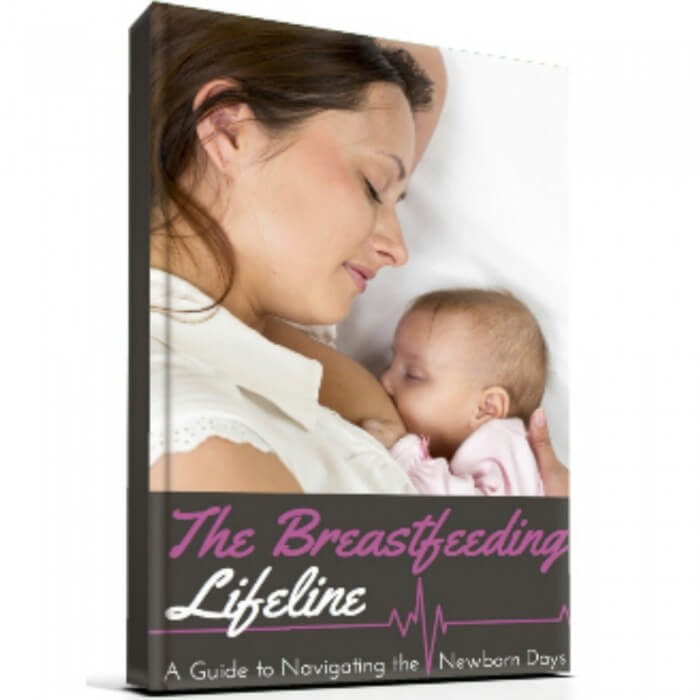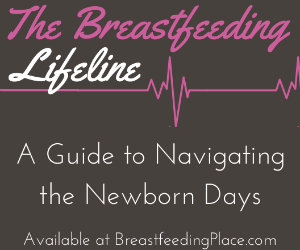 Having a baby is supposed to be a time filled with joy and wonder. It’s supposed to be overflowing with happiness and giddy new parent smiling.
Having a baby is supposed to be a time filled with joy and wonder. It’s supposed to be overflowing with happiness and giddy new parent smiling.
But what if it isn’t? What if you feel a deep-seated sadness? What if your baby blues aren’t going away? What if you feel frustrated because you know how you are supposed to feel, but your actual feelings are quite different? What if you’re breastfeeding and postpartum depression begins to creep in?
I’ve been there. Three times, in fact. Postpartum depression is a heavy burden to bear and it can be very overwhelming without the proper attention and care.
There’s a stigma and a guilt that overshadows a mother who is dealing with this illness. If she is lacking compassionate people in her life who are willing to be patient while she works through the difficult emotions that she is feeling, then she just might try to swallow her feelings and muddle through them on her own until she reaches a breaking point.
Don’t do this. Trust me. It’s not good for you or for Baby.
What is Postpartum Depression?
It’s a clinical depression that can rear its head in the weeks, months, or even up to a year (or more) after a woman has given birth.
Symptoms include:
- sadness
- guilt
- fatigue
- irritability
- feelings of being overwhelmed and frustrated
- low energy
- low libido
- disruptions in sleeping and eating patterns
Postpartum depression can lead to a mother providing inadequate care for herself and/or her child, a lack of bonding with her child, and even thoughts of harming self or others. It is something to take very seriously.
Now what do you do if you have PPD and you are also a breastfeeding mother? If you are like me and want to look into some natural alternatives before going to your doctor to discuss other options, here are some things to try.
Natural Treatment Options for Breastfeeding and Postpartum Depression
- Omega 3 Fatty Acids
Specifically, DHA and EPA are shown to help treat and decrease depression and are safe while pregnant and nursing. Fish oil is the best source for this, but there are other options. I like and use Pregnancy Plus Omega 3 from Fairhaven Health. - St. John’s Wort
While not safe during pregnancy, this is fine to use while breastfeeding. It is widely used as a natural treatment for many types of depression, not just postpartum. Be careful to research before using it because it is known to have bad reactions when mixed with certain medications. - Exercise
I know, I know. I groan when I see that word, too, but it’s true. Get up and moving! Even going for a brisk walk every evening can get you feeling better overall. - Sunlight
Ever heard of the winter blues? Or seasonal affective disorder? Lack of adequate sunlight exposure can lead to a disruption in your sleep patterns. As any mother knows, sleep deprivation and new babies go hand-in-hand. Add in too much time spent indoors and you have a recipe for a grumpy mummy. Sleep deprivation is nothing to scoff at. Get outside and spend at least 30 minutes in the sun a few times a week.
Other Options
Another reason that new mothers don’t want to share their struggles is because they are leery of using any kind of medication to treat their depression while they are nursing. This was my own personal battle as well. I knew that I desperately needed some help for my sake and that of my other children, but I’m the type that doesn’t even like to take ibuprofen unless I have a head-splitting migraine. It’s tough to make these decisions when you know that it’s possible for anything you consume to be ingested by your infant through your breast milk.
However, what it really boils down to is that you need to be at your best to be a good mother and sometimes that means doing things that you might not otherwise think to do. If the natural alternatives don’t work, there are medications that are safe to use while breastfeeding that can help get you back to being yourself so that you can enjoy life with your child.
SSRIs are deemed the best option for nursing mothers because they have minimal side effects, low dependency, and very little trace through breast milk. Speak with your doctor and ask any questions that you have on the subject. Knowledge is power!
Don’t be afraid to get the help you need. It’s of utmost importance that mothers stay healthy both physically and mentally so that they can be the nurturers that their babies need.






[…] they were not planned. The hormonal shift of pregnancy and weaning caused me to start down the road of depression […]